How Often Do Melbourne Homeowners Need
to Replace Water Heaters?
Don't wait until your hot water runs out to consider maintaining your water heater. Proper maintenance is crucial to avoid unexpected and upsetting disruptions. Our guide will help you identify warning signs for replacement and factors to consider when purchasing a new system. Keep your family's hot water supply reliable and consistent with our expert advice. Keep reading to learn more.

How long do water heaters last?
Get more out of your home's hot water heater by understanding the factors that impact its lifespan. While these essential appliances typically last 8 to 12 years, it's important to be aware of the following factors that could impact your heater's longevity:
Did you know that tankless water heaters usually surpass traditional units in lifespan?
However, the key factor that can reduce its longevity is the installation or maintenance. It is vital to maintain regular check-up of your water heater and have it inspected for maximum efficiency and long-lasting performance.
Be mindful of your daily usage and any hard water as it can speed up its wear and tear, affecting its long-term function.

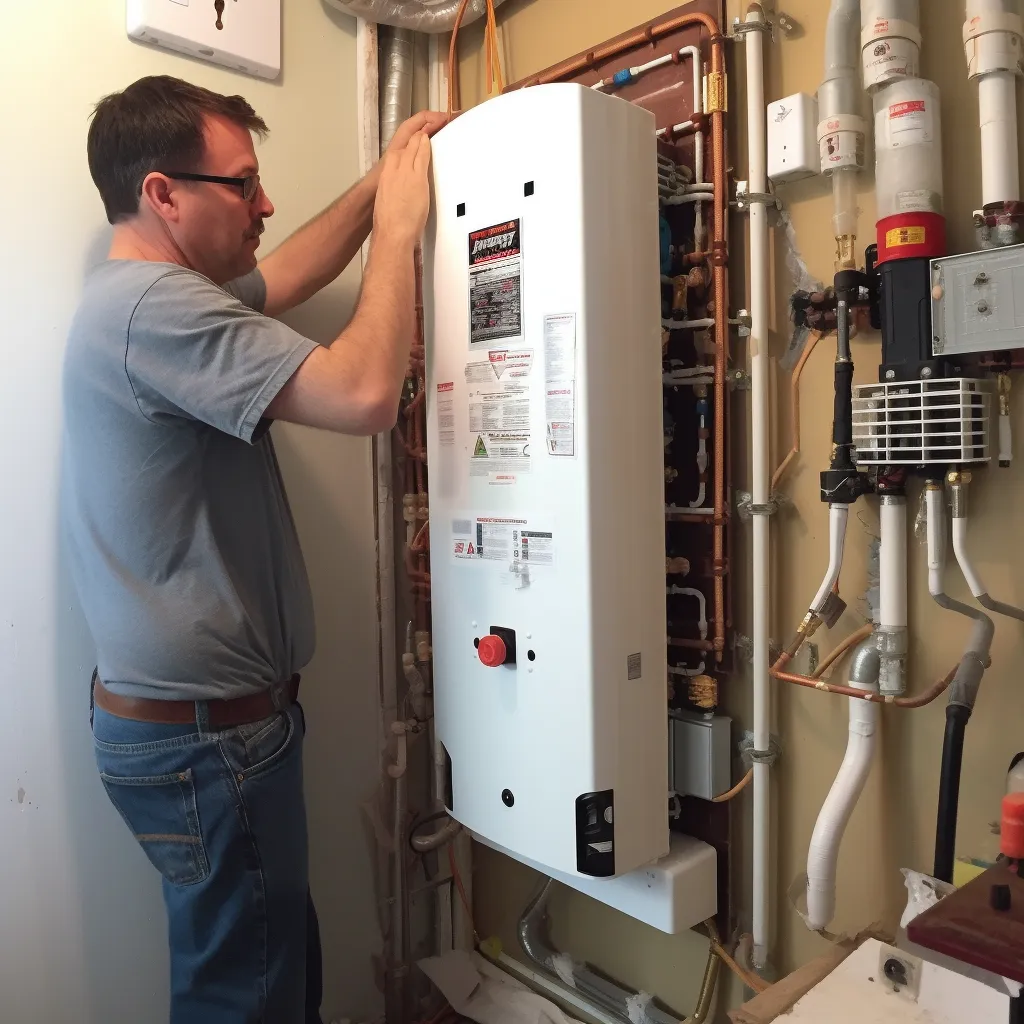
Analyze your budget for a new hot water heater
Choosing the right water heater for your home and budget may be tough due to the diverse selection available. Keep your budget and household needs for energy efficiency, capacity, and suitability in mind to make the best choice. While some models involve higher upfront costs, the energy bill savings in the long run may exceed it. Investing in a high-quality water heater can save you significant money down the road, so take your time and assess your options thoroughly.

Replacing a water heater is a significant decision
Choosing a new water heater involves many factors, such as efficiency, age, and cost. It's a big decision that requires careful thought. If your current water heater is frequently in need of repair or more than ten years old, it's time to think about upgrading to a more efficient model that can save you money on your utility bills. A little research and consultation with a professional will help you determine the best course of action for your specific needs.

How to extend the lifespan
of your water heater
Don't neglect your water heater until it breaks down. Extend its lifespan with these tips to optimize performance.
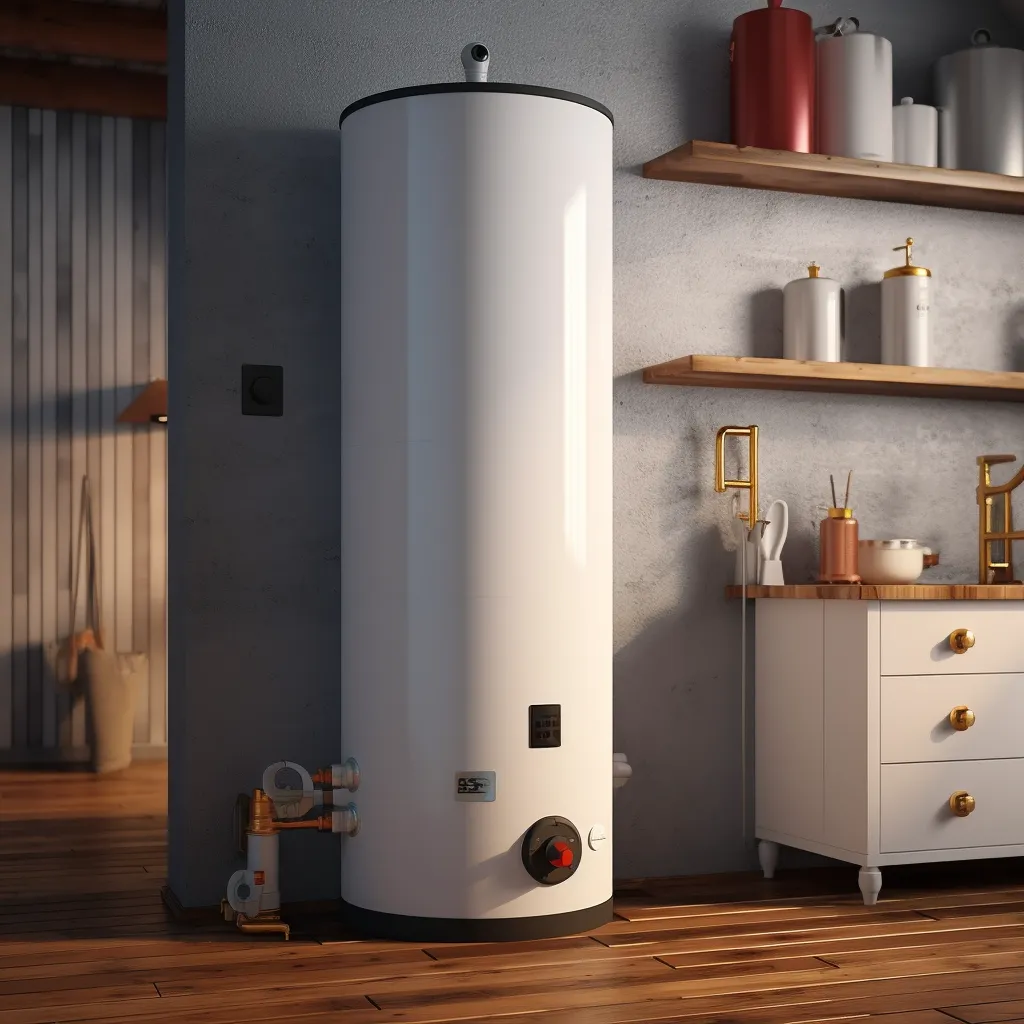
Flush and maintain regularly: Reduce corrosion and increase longevity by removing sediment.
Install a filter: Keep your pipes debris-free with a water filter.
Insulate your hot water storage tanks: Cut heat loss and save energy.
Check temperature and pressure: Avoid dangerous pressure buildup by inspecting regularly.
Inspect and replace anode rod: Prevent corrosion with regular maintenance.
Install a timer: Save money and give your heater a break with a timer.
Lower temperature setting: Increase efficiency and reduce wear-and-tear.
Want your water heater to last longer and save money on repairs and energy bills? It's all about maintenance! Simply inspecting and flushing your heater to remove sediment can reduce corrosion and boost longevity. Take action now to ease your future worries.

Make sure to address
any malfunctions
Keep your water heater in perfect working condition by addressing any malfunctions as soon as they arise. Look out for warning signs such as insufficient hot water production or strange noises coming from the heater, which could be caused by a faulty heating element or sediment buildup. Don't wait to seek the services of a specialist to diagnose and repair the issue, as timely repairs can save you money in the long run and prolong the lifespan of your heater. Trust us, addressing these problems early on will be worth it in the end.
Signs it's time to get a new water heater
Is your water heater showing signs of wear and tear? Don't ignore these warning signs! Mechanical devices like your home's water heater eventually break down over time. Keep an eye out for these indicators and consider replacing your old unit with a brand new one. Check for:

Age: If it's been a decade or more, it may be time for a new one.
Noises: Popping or gurgling sounds mean a new tank is in order.
Leaks: Water around the base is a sure sign of a leak.
Hot Water Outages: Frequent outages mean it may be time to replace your water heater.
High Energy Bills: A faulty water heater can lead to sudden bill increases.
Frequent Repairs: If you're constantly repairing your water heater, consider upgrading.
Corrosion or Rust: Rust around the unit is a sign it's on its way out.
Strange Taste or Smell: Off-tasting or smelling water indicates a malfunctioning unit.
Insufficient Hot Water: Not enough hot water? Consider a replacement.
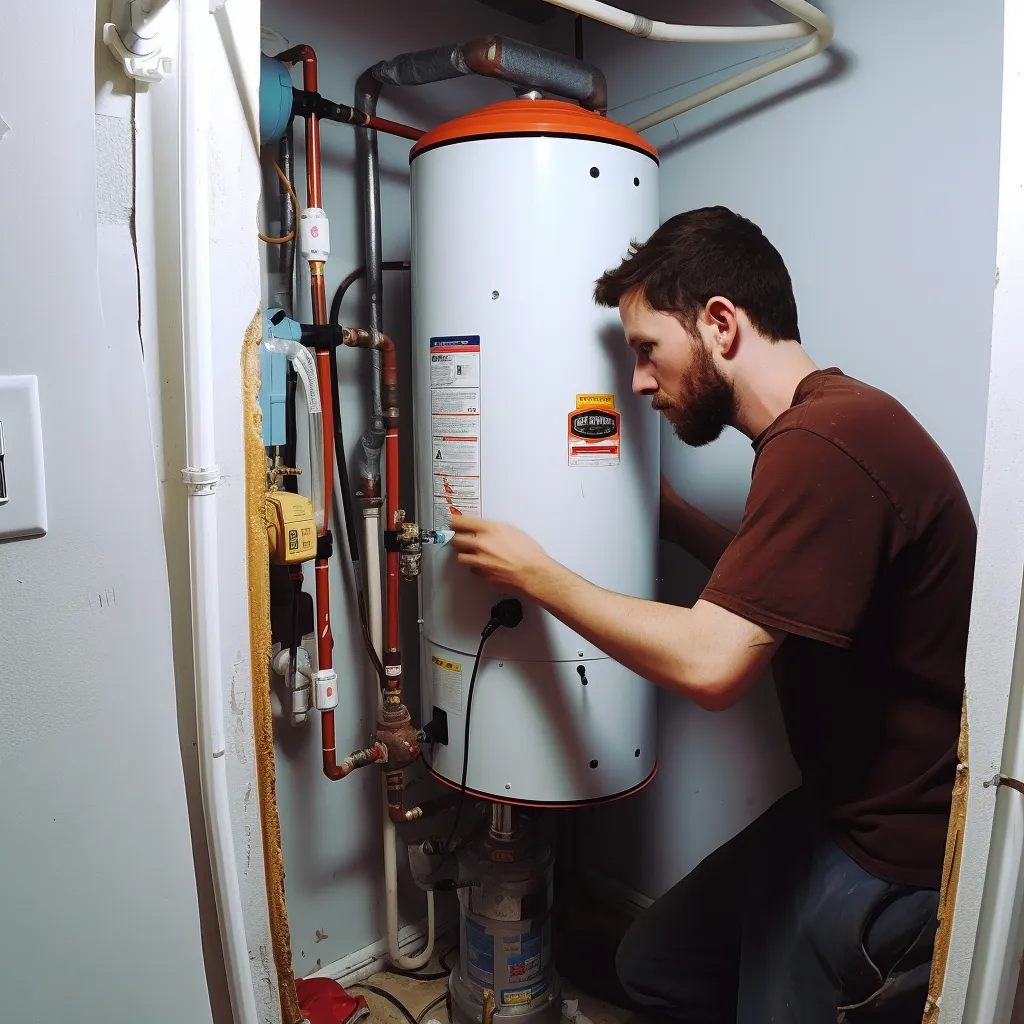
Don't ignore warning signs - they could wreak havoc on your home and even endanger your health. Act fast and seek professional advice to find the best solution before it's too late.
What is the cost of replacing
a water heater?
Wondering about the cost of replacing your water heater? Multiple factors affect the price, so let's break it down for you. Here they are:
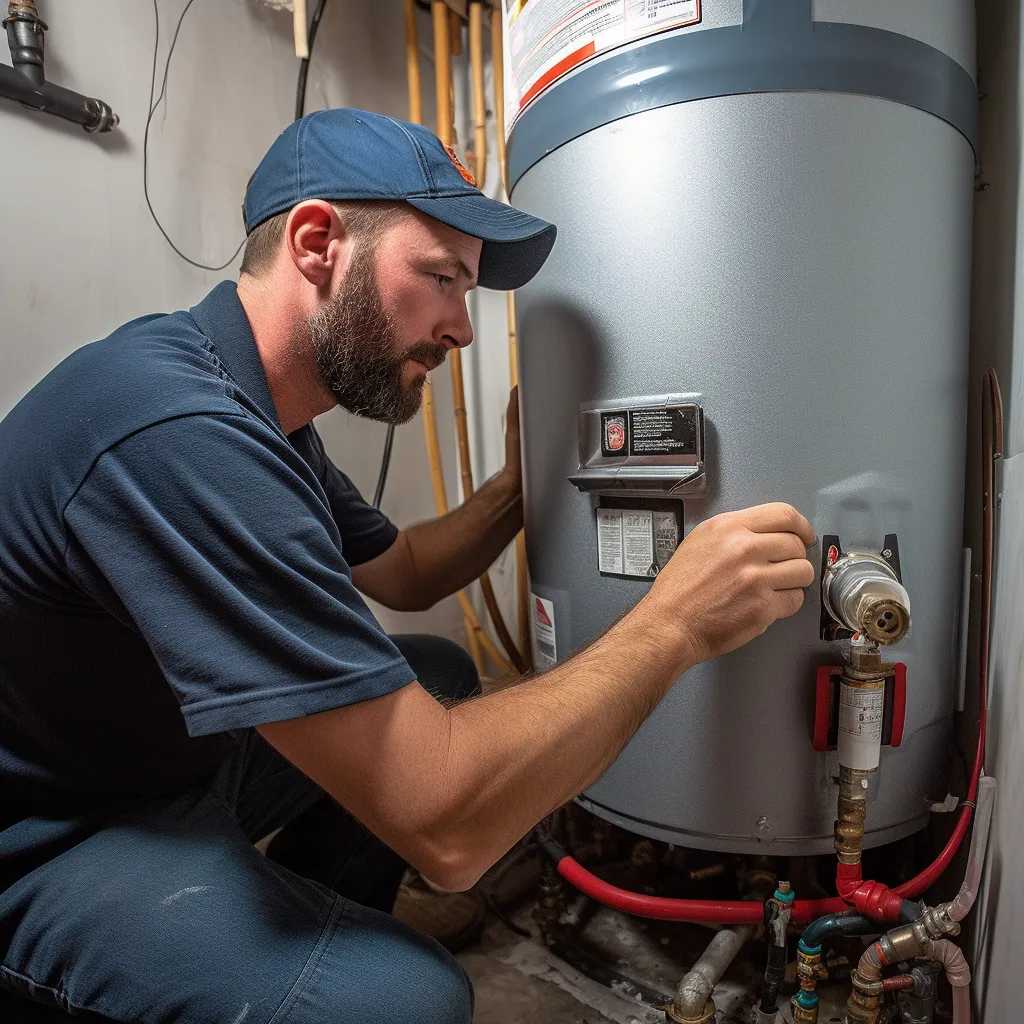
From electric tanks to tankless systems, the type of water heater you choose can impact its replacement cost.
Expect a higher bill for larger units.
Keep in mind that complex installations can also cost more. Be sure to consider installation fees when planning your budget for a replacement water heater.
Upgrading your water heater can be a pricey decision, with standard electric models ranging from $500 to $2,500 to replace, and tankless repairs reaching up to $3,500. However, investing in a top-notch unit pays off in the long-term, as it can decrease utility expenses and increase energy efficiency. Don't put off replacing your water heater for too long, or you could face expensive home damage in the future.
Common frequently asked questions about replacing and installing a water heater
Get on the right track with these commonly asked questions about replacing and installing water heaters. Here are a few:
What is the required size for my water heater?
How long will the installation take?
Which fuel source should my heater utilize?
What is the approximate cost estimate?
Is professional assistance mandatory during installation?
Replacing or installing a water heater can be a daunting task. But to make the right choice, all you need is a consultation with licensed plumbers who can help you. They'll guide you on the suitable size and type of water heater for your home. Not to mention, provide you with a precise estimate of installation costs and any required additional work. Why hesitate? Book a consultation now and experience peace of mind.
How you can save money
when replacing a hot water heater
Replacing a hot water heater doesn't need to be expensive. These tips can save you save money and ensure consistent hot water access for your home.
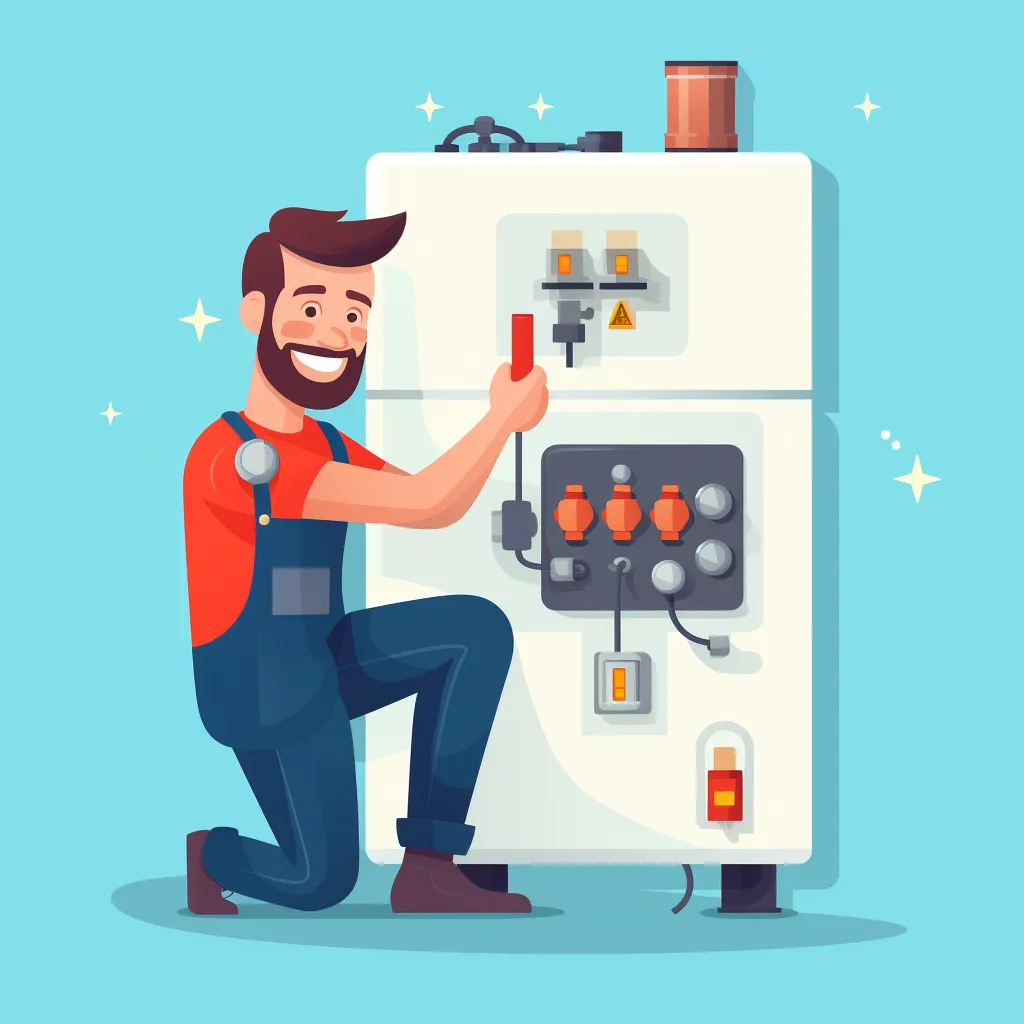
Research and compare different options, like standard electric models and tankless systems, to find the best fit for your home.
Invest in an energy-efficient model to reduce monthly utility costs.
Shop around and compare prices from multiple retailers and suppliers to get the best deal.
Explore rebates and incentives offered by your state for purchasing an energy-efficient water heater.
Consider tankless water heaters, despite their initial cost, for significant energy savings over time.
To avoid safety risks, always hire a trained professional for installation instead of attempting a risky DIY project.
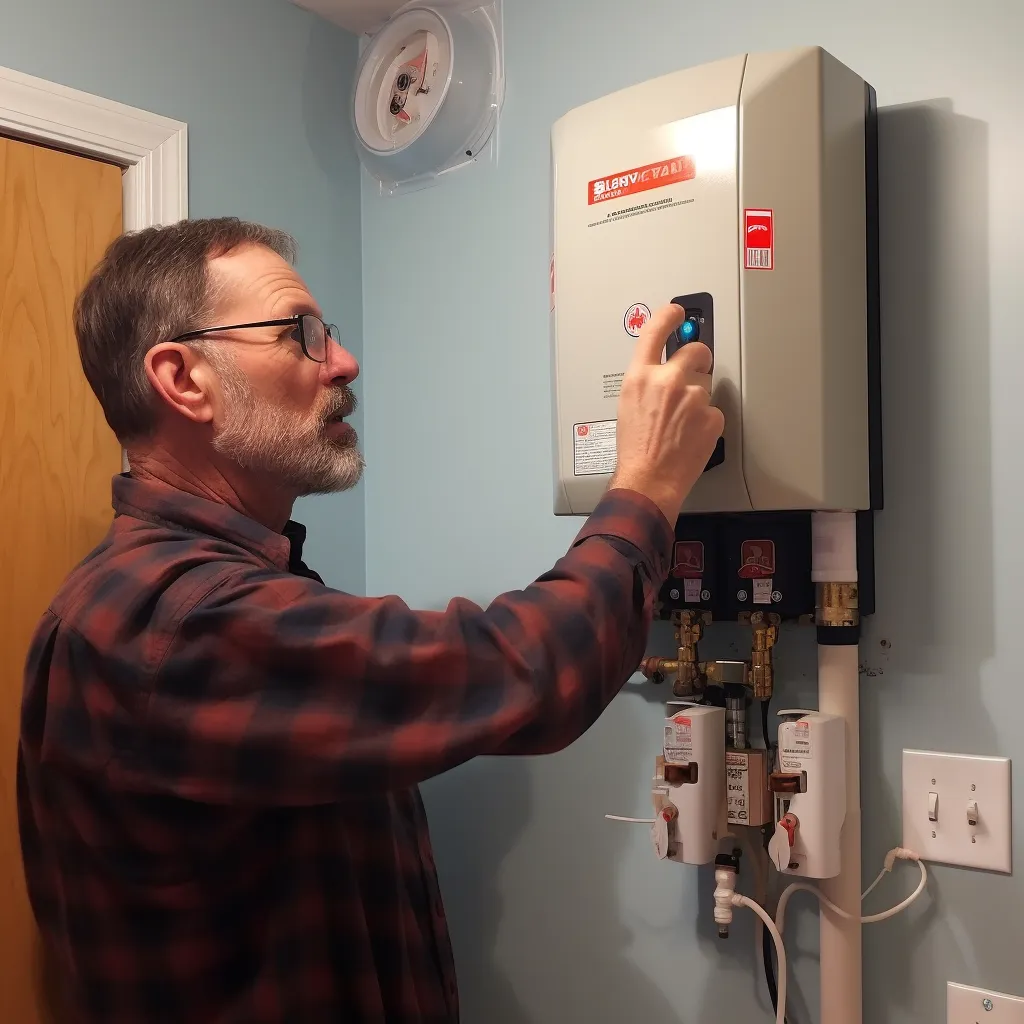
Why you should hire a professional
vs DIY installation
of a water heater
Don't be fooled into thinking that replacing your old hot water heater is a simple task. While you may be tempted to DIY, it requires skills and knowledge that professionals possess. Not only can opting for professional installation save you money in the long run, but they also ensure that the job is done correctly, in compliance with code, and backed by a warranty. Opting for a DIY approach can result in errors, leading to further expenses and energy usage. Don't take the risk - think twice before replacing your heater alone and seek professional help instead.

Tips on finding a water heater professional for installation
When you're hiring a licensed professional for water heater installation, remember these important things:

Research is important: Take the time to look up reviews, testimonials, and recommendations from trusted sources.
Credentials matter: Always check for proper licensing, insurance, and qualifications.
Ask for feedback: Seek out feedback from previous customers to gauge the quality of their work.
Get estimates: Obtain detailed estimates from multiple professionals to compare prices and services.
Remember, while cost is a factor, choosing a skilled and certified professional is key to safe and effective installation. Investing in the right expert may save you money and prevent future hassles."
Ready to Solve Your Plumbing Needs?
For reliable, expert plumbing services tailored to the needs of Melbourne and its neighboring cities, look no further than RapidFlow Water Heaters. We’re here for you 24/7, ensuring that your plumbing is always in top condition.
Call us today to schedule your service!
Business Hours: Monday - Sunday, 24 Hours
Phone Number: 321-844-2770
Location: Melbourne, FL, serving all surrounding areas.
Trust your local experts at RapidFlow Water Heaters for professional, timely, and efficient plumbing solutions.
GET IN FULL TOUCH
PHONE: 321-844-2770
EMAIL:
sam@waterheatermelbourne.com
RapidFlow Water Heaters
Melbourne, FL 32901
